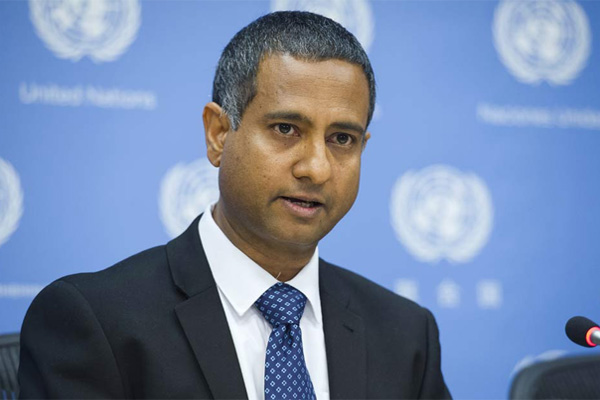
UN Special Rapporteur holds talks at the Ministry of Justice
At the meeting, the leadership of the Ministry of Justice noted that this visit is an indicator the practical implementation of the initiatives of the President of Uzbekistan Shavkat Mirziyoyev to strengthen cooperation with the UN and other authoritative international organizations.
In addition, the Minister of Justice emphasized that Uzbekistan is adhering to the universally recognized international principles and norms in the field of human rights. The main priorities of the state policy in relation to religion is the guarantee of freedom of conscience and faith of citizens, strengthening of inter-regional and interethnic friendship, formation of a culture of tolerance in society.
The UN Special Rapporteur was informed of the legal framework established in the country, regulating relations in this sphere. In particular, the Law of the Republic of Uzbekistan “On Freedom of Conscience and Religious Organizations” was adopted on the basis of and in compliance with constitutional norms related to ensuring freedom of religion and belief.
Along with this, it is noted that Uzbekistan is a secular country where religion is separated from the state and politics. It was said that religious and other fanaticism and extremism, actions aimed at opposing and aggravating relations, inciting hatred between different faiths and sects are not allowed. In addition, as in most legal states, religious organizations must undergo legal registration and have transparent accounting.
Currently, 2,242 religious organizations belonging to 16 confessions have been registered in the justice bodies of Uzbekistan.
Ahmed Shaheed noted that he has great respect for rich history and culture of Uzbekistan, famous for his great scientists and thinkers who have made a great contribution to the development of the world and Islamic civilization. He also highly appreciated the achievements of Uzbekistan in ensuring peaceful coexistence in the country of different peoples and nationalities professing different religions.
During the meeting, the sides discussed issues on current state of provision of interreligious and inter-confessional consent, as well as religious tolerance in the country.